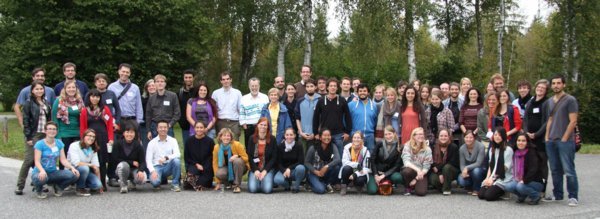day 1: LM Linear Regression, multiple Regression ANOVA, ANCOVA (least-square method, parameterisation, interactions, tests (marginal and sequential), model selection, model assumptions, predictions, introduction to Bayesian data analysis);
day 2: LME linear mixed models (maximum likelihood, restricted maximum likelihood, random and fixed effects, likelihood ratio test / bootstrap, random slopes-random intercept models, evt. further model types depending on the participants wishes);
day 3: LME (model matrix, simulating posterior distributions of model parameters, predictions, posterior probabilities of hypotheses, preparing data for work on own data);
day 4: work on own data and presentations.
Prerequisite for participation: Basic knowledge in R programming is required. Particularly, it is assumed that you are familiar with working with the R Console and an editor, reading the data and producing the most common graphics (histogram, scatterplot, boxplot).
[more]

